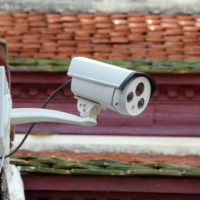The Basics Of Negligent Security

Crime does not discriminate, and any one of us on any given day may be the subject of dangerous criminal activity. Typically, the victim of a crime attributes his or her involvement to being in the wrong place at the wrong time and does not seek any form of justice save through arrest and detainment. However, other times a victim may think, “What if?” What if the property owner had implemented stricter security measures? What if a security guard had done his or her job properly and detained the criminal before he or she had an opportunity to inflict damage? What if the entire situation could have been prevented entirely?
Fortunately, the legal system allows victims to explore these “what ifs” and recover compensation for their injuries if someone was liable. This is thanks to the notion of negligent security, which falls under the broader theory of premises liability.
Who Pays in Negligent Security Cases?
Negligent security cases arise when the victim of a crime—which may include robbery, rape, assault, or battery—sues a property owner for failure to offer reasonable security measures and protect lawful visitors from foreseeable crimes committed by third parties. If the decision makers determine that the crime could have been prevented or at least made less likely with appropriate security measures, the property owner may be held liable for damages sustained.
How Can One Prove Negligent Security?
Just as in any other personal injury case, the plaintiff is required to prove certain elements to be true if he or she hopes to win a negligent security case. The first four elements of a negligent security claim are similar to those of a car accident or other personal injury claim:
- A duty existed to offer reasonable security, which can be proven simply by showing that the plaintiff was lawfully present on the defendant’s property;
- The property owner breached his or her duty by failing to exercise reasonable care to discover prior criminal activities and/or give adequate warnings;
- The third party’s actions were reasonably foreseeable, and the plaintiff was injured because of the defendant’s breach; and
- Actual damages were incurred.
However, unlike in most other personal injury cases, the plaintiff must prove “foreseeability,” which is the basis off of which most negligent security cases hinge.
What Is and Is Not Considered Foreseeable?
Foreseeability is a key concept for any Miami resident who wishes to pursue a negligent security claim. However, what incidents are considered foreseeable differs depending on the circumstances. To determine foreseeability, the decision makers will consider the history of the property, any past incidents that occurred on or near the property, the type of property, crime statistics in the area, and the nature of the business. For instance, the owner of a mall has a greater responsibility to its patrons than, say, the owner of a home-based business. However, if a business has had several of the same types of incidents occur on its property—say, for instance, five assaults occur on the property within the span of a year—then the property or business owner may be held liable for failing to prevent that fifth assault, regardless of the size of his or her establishment.
The court will also take into consideration how frequently law enforcement have been called to the property, whether the crimes on the property are against the property itself or other patrons, and the closeness in time of the prior crimes to the injury at issue.
Why Work With a Miami Negligent Security Attorney?
It is always a good idea to work with an experienced lawyer when pursuing any type of personal injury claim. However, because negligent security claims are much more delicate—after all, no business owner plans for its patrons to be injured or assaulted when on the property—these cases require a deeper understanding of the law and both the rights of business owners and patrons alike. If you or a loved one was injured on another person or entity’s property, reach out to the knowledgeable Miami negligent security attorneys at Spencer Morgan Law to discuss your case today.
Resource:
leg.state.fl.us/Statutes/index.cfm?App_mode=Display_Statute&URL=0700-0799/0768/0768PARTIContentsIndex.html
